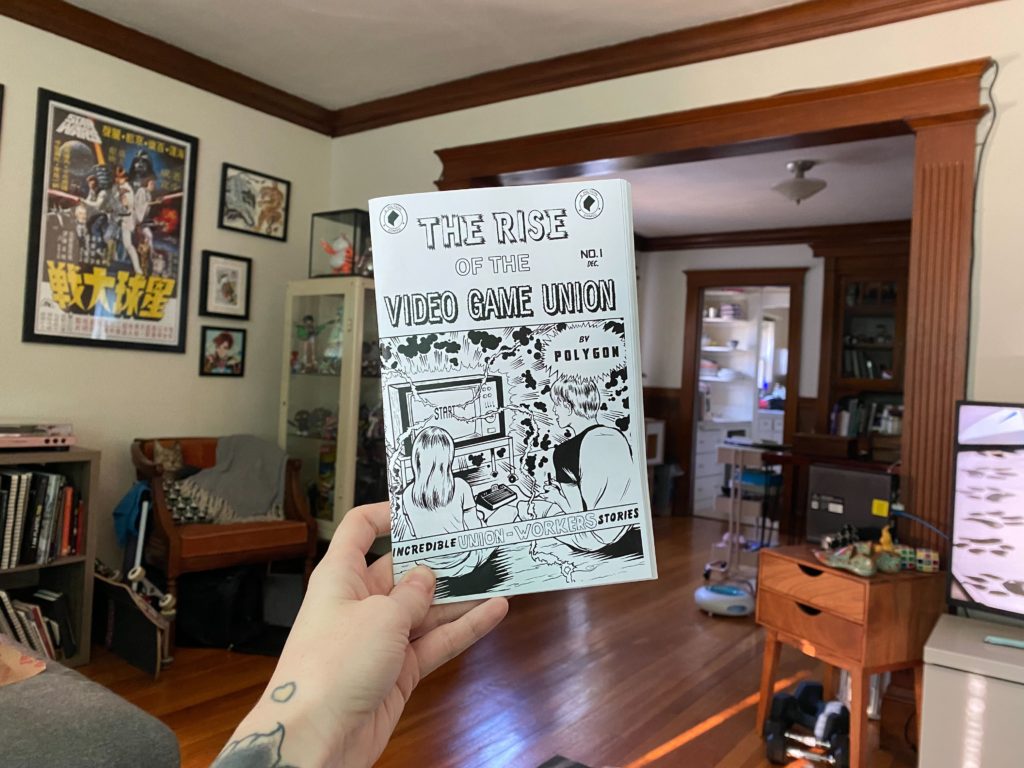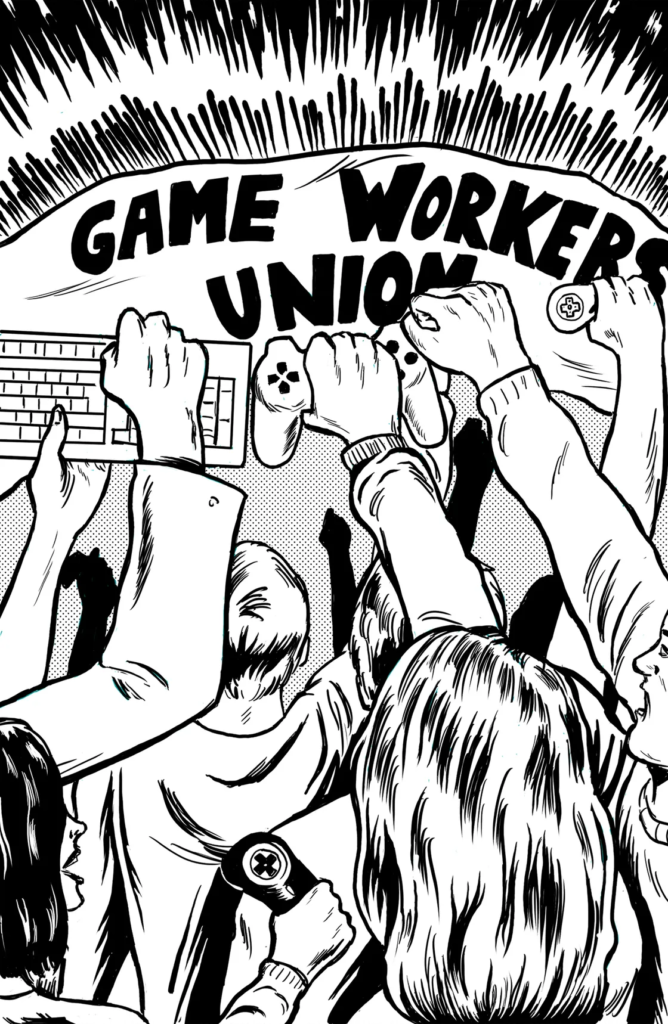
Much is amiss in the world. Much is amiss in the World of Warcraft.
Employees at Activision Blizzard, the company behind Warcraft, Call of Duty, Tony Hawk’s Pro Skater and many more video games, staged walkouts throughout last summer. The labour disruption stemmed not only from frustrations with sexism and harassment, but from CEO Bobby Kotick, exposed for not only being aware of the severity of the issue but a driver of it. It was the strongest spike in the video game labour movement in many worker’s lifetimes. Not the first. Certainly not the last. And despite being such a digitally-centric industry, zines can play as much a part in this new push for a worker’s rights to create virtual worlds as they have for previous, analogue movements.
“I also grew up making zines,” says Senior Polygon Reporter Nicole Carpenter, “on early AOL I made digital zines sent over email, and as a teenager into my 20s I made zines meant to be photocopied and passed around. It was always both a creative outlet and a way to spread information.
“Like with labour campaigns and leaflets, zines are a really good way to provide information in an accessible, grassroots way.”

This month, Carpenter and Polygon published The Rise of the Video Game Union, an infozine documenting the ongoing history of video games and the labour movement, from the failed Atari union of 1984 to the successful union vote at Raven Software this year. A first of its kind, nevermind within a subsidiary of Activision Blizzard. It also details information relevant to those interested in becoming involved in the current movement.
Even though Polygon is a digital publication, Carpenter and her team felt it was appropriate that this information be available not only as a print object, but an accessible and easily distributable one. While the internet is accessible in theory, sites and access to them are more tentative than we often realize, especially in highly corporate spaces. This makes leaflets and printed information easier to distribute in sensitive environments. Carpenter told me that it was the plan from day one to publish this information with a zine, one that harkens back to leaflet campaigns, classic pulp comics and the labour history it summons.
The last few years have proven that the drivers of commerce are eying an even more virtual economy. Infinite digital goods, but little to compensate the creators who would make such a reality possible. And just like with Uber, some investors are holding out for artificial intelligence to replace paid workers, which even now in an infant state create more nightmares of art and ownership than online masterpieces. There’s no time like the present for video game workers to fight for a future where they are treated equitably.
“Video game workers unionize for the same reasons that people in other industries unionize,” says Carpenter, “they want a say in how they’re treated at the workplace. Workers are the labor that create value for a company, and that’s largely true for any workplace.”
